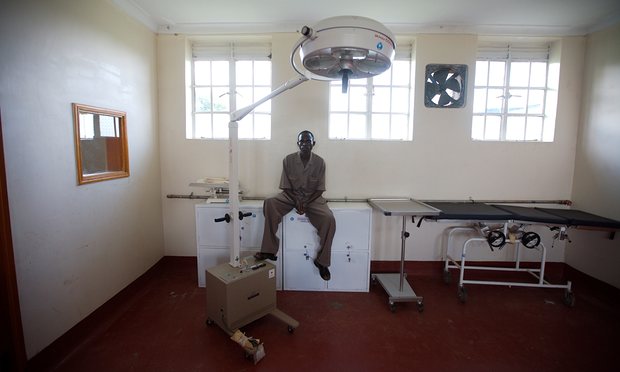African pride as Rwanda prepares for cycling history
Uganda’s radiotherapy machine has broken – but crowdfunding isn’t the fix

The Guardian / The Cobalt-60 radiation machine was donated in 1995.
Uganda’s only radiotherapy machine has performed its last act, finally breaking down after 21 years of faithful service in Kampala’s national referral hospital, Mulago.
As a result, at least 2,000 patients have been left with no access to radiotherapy and cancer sufferers will have to travel to neighbouring Kenya if they are to receive treatment, which could cost them up to $5,000.
Understandably, news of the breakdown prompted widespread outcry, with citizens taking to social media to call on the government to #saveMulago and buy an emergency replacement.
In response, the Uganda Cancer Institute (UCI) called a rushed press conference, led by the government’s health minister, who played down the impact of the machine’s failure to reporters, claiming that only 20% of cancer patients will be affected.
But health professionals and oncologists say otherwise: they estimate that more than 75% of cancer sufferers will now have no option but to travel abroad for treatment.
Uganda records around 20,000 new cases of cancer per year, and it’s estimated that around 300,000 cases will be registered in the next five years. Since it was donated in 1995, the radiation machine has, on average, catered for 27,648 patients annually, according to the UCI.
To make matters worse, the UCI has also said that more than 80% of cancer patients in Uganda are diagnosed late, usually at stage 3 or 4, a time when access to radiotherapy is often critical.
So why can’t the government just buy a new one? Officials claim they have already placed an order for a new Cobalt-60 radiation machine, but say they are awaiting the construction of a special bunker in which to house it.
Dr Jackson Orem, head of the UCI, says the construction depends on securing 31bn Ugandan shillings (£6.4m) in the next financial year, meaning cancer patients in need of urgent treatment will have to wait at least 18 months – if they survive – before they are able to gain access.
Otherwise, the nearest point of treatment is Nairobi – an impossible ask for most patients in a country where around six million people live in poverty.
In the absence of immediate government action to supply the £1.3m cost of a new machine, Ugandans have started to consider crowdfunding for one instead, while reports circulate that high profile figures have been pledging to donate large sums.
But the breakdown is just a glimpse into Uganda’s ailing healthcare system. As well intentioned as it is to privately fund a new machine, it’s a dangerous route which denies average citizens the agency to hold their government to account.
We can’t crowdfund our right to healthcare, and we should not pay for the cancer treatments for 2,000 patients ourselves, thereby giving our government a pass on their responsibility to provide us with basic services.
Though it’s commonplace to see calls in the media and on social platforms from desperate Ugandans seeking donations to go for surgery in Kenya, India or South Africa, this cannot be another of these cases. It would only signal to the government that beyond paying taxes, Ugandans are willing to keep stumping up cash for short-term fixes.
It’s also worth remembering that all of this happened – the breakdown, the outrage, the calls for donations – just a week after the IMF warned the Ugandan government about diverting money meant for social services into “unaccountable sectors”, such as security details and election campaigns.
In addition, last Friday the Ugandan parliament approved an extra budget worth billions of shillings to president Yoweri Museveni after it emerged he had exhausted his allotted funds for the 2015/16 financial year on his recent presidential campaign.
In this context, the machine breakdown is a clear statement that the government’s survival trumps the health of its people.
So, as tempting as it is to privately fund a new radiotherapy machine to help those in need in the short-term, it will have devastating impact in the long run. We have to start demanding more from our government.












Leave a Reply
Be the First to Comment!
You must be logged in to post a comment.
You must be logged in to post a comment.